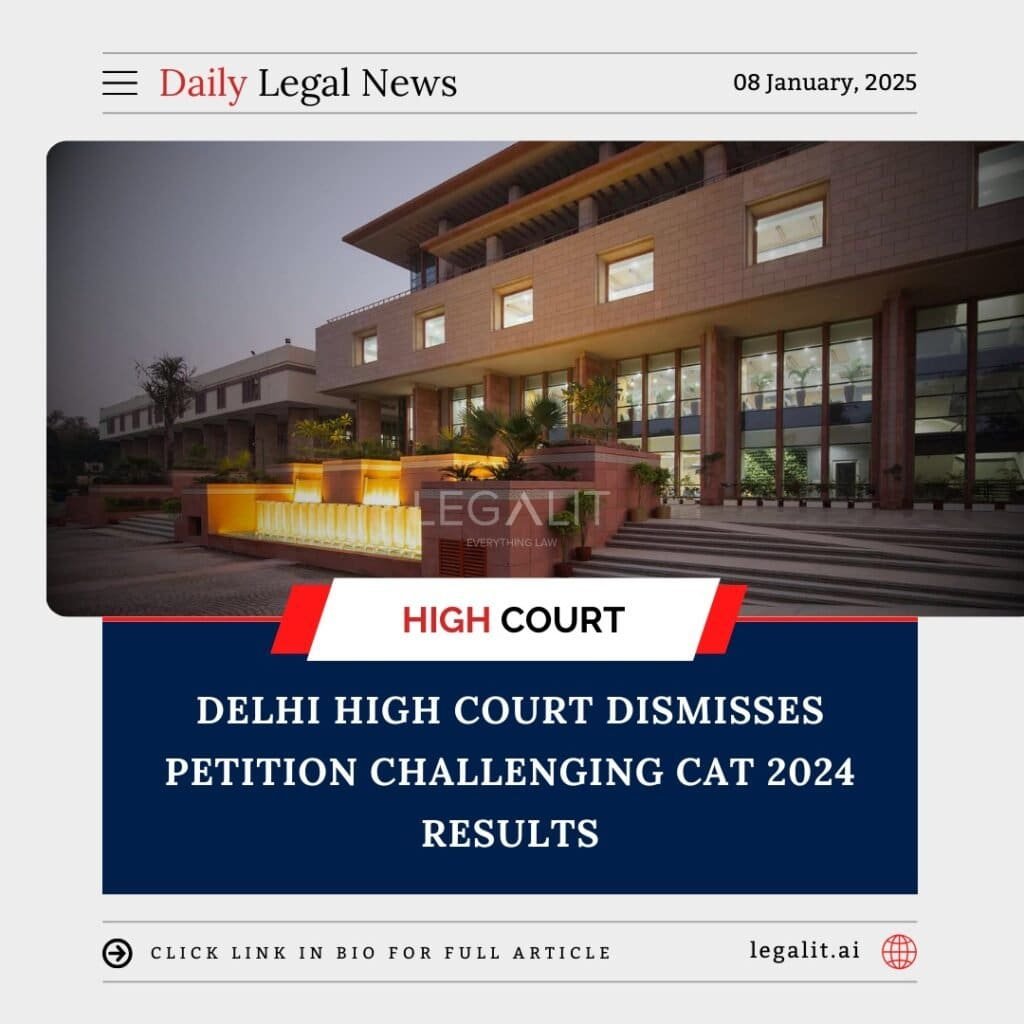
The Delhi High Court has rejected a plea filed by a group of candidates seeking to challenge the results of the Common Admission Test (CAT) 2024. The petitioners had alleged discrepancies in the evaluation process and claimed that the results were not transparent. The court, however, found no merit in their arguments and upheld the results as declared by the organizing body.
Background of the Case
The CAT 2024 examination is a national-level entrance test for admission to management programs across India. The petitioners, who appeared for the test, raised concerns over the accuracy of the results, alleging irregularities in the grading process. They claimed that the normalization process used to calculate scores was flawed, leading to discrepancies in rankings.
The petitioners argued that the lack of transparency in how scores were calculated violated their rights and demanded a re-evaluation of the results. They sought the court’s intervention to direct the Indian Institutes of Management (IIMs), which oversee the exam, to provide a detailed explanation of the grading methodology.
Court’s Observations
The Delhi High Court carefully examined the arguments presented by both the petitioners and the counsel representing the IIMs. It noted the following:
- The normalization process adopted by the IIMs had been consistently used in previous years and was designed to account for variations in difficulty levels across different exam slots.
- The IIMs provided sufficient documentation outlining the methodology used for evaluation, which aligned with industry standards.
- The petitioners failed to produce substantial evidence to prove that the process was inherently biased or flawed.
The court concluded that the petition lacked merit and dismissed it, stating that judicial intervention in academic matters should only occur in cases of clear injustice or malfeasance, which were not evident in this instance.
Impact of the Decision
1. Validation of Existing Processes
The ruling reaffirms the robustness of the CAT evaluation and normalization process. This decision provides reassurance to stakeholders about the credibility of the examination system.
2. Limited Judicial Interference in Academic Matters
The court’s decision highlights the principle of non-interference in academic processes unless there is substantial evidence of malpractice or procedural lapses.
3. Implications for Future Grievances
The judgment sets a precedent for handling similar grievances in the future, emphasizing the importance of credible evidence before challenging established processes in courts.
Conclusion
The Delhi High Court’s dismissal of the plea against the CAT 2024 results underscores the judiciary’s trust in the fairness of established evaluation systems. It also serves as a reminder to aspirants and institutions to focus on transparency and adherence to guidelines to avoid such disputes. With this decision, the results of CAT 2024 remain valid, allowing candidates to proceed with admissions to management programs without further delays.